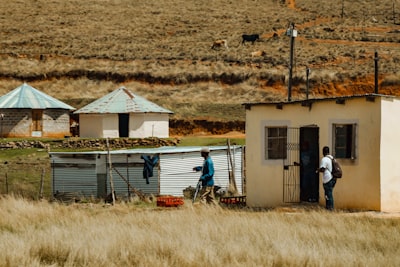Summary
The arrest of Tšolo Thakeli, a 31-year-old activist and father from Lesotho, highlights the fraught relationship between civil society and political power in this southern African nation. After posting a viral social media video questioning Prime Minister Sam Matekane’s unfulfilled jobs promise, Thakeli was arrested, first on abandoned charges of insult and incitement, later for sedition. He endured poor jail conditions, was warned against publicly naming the prime minister, and his continued outspokenness has put his safety at risk. Thakeli’s case has galvanized protests in Maseru, Lesotho’s capital, and drawn the attention of regional human rights activists, raising serious concerns about the suppression of dissent and the democratic deficit around basic issues like youth unemployment, which officially hovers at 24%.
Analysis
Thakeli’s arrest must be seen in the wider context of state sensitivity to criticism, especially amid persistent economic woes. Lesotho’s unemployment crisis, particularly among the youth, reflects deep-seated issues: slow economic growth, a lack of industrial diversification, and ongoing corruption. Prime Minister Matekane’s highly publicized promise of 70,000 jobs in three weeks — in the absence of any budgetary support — not only stretches credulity but also exposes a reliance on political performance over practical policymaking.
The government’s response to Thakeli — intimidation, detention, and veiled threats — reveals not just a disregard for civil rights but a fundamental discomfort with accountability. The state’s framing of a lone, peaceful campaigner as a security threat might be viewed as an attempt to discourage others from criticizing the regime or challenging its narratives. Such actions strike at the core of democratic freedoms and erode public trust, especially when economic hardship heightens the demand for honest, responsive leadership.
One notable aspect of the crisis is the government’s implicit message, via police threats, that those who speak against power can expect no protection, a chilling warning that undermines the very idea of citizenship and civic duty. In a region marked by bouts of political crackdown — from Zimbabwe to Eswatini — Lesotho’s overreach forms part of a broader trend where economic frustration becomes a catalyst for confrontation between citizens and increasingly defensive states.
Discussion
The Thakeli episode is emblematic of a broader global question: Who gets to ask uncomfortable questions, and what happens when they do? In societies battling unemployment and mass disillusionment, public accountability becomes both more urgent and more precarious. Lesotho’s response also poses questions about the role of social media as both a democratizing tool and a trigger for state repression: Thakeli’s blend of memes and humor helped spark a critical conversation, but also exposed him to danger.
Are governments right to fear the viral spread of critique, or does repression only stoke further dissent? Lesotho’s youth, already facing bleak prospects, saw in Thakeli’s post an authentic reflection of their struggle — and the authorities’ harsh reaction may deepen their sense of alienation. Moreover, the international and regional concern over Thakeli’s treatment underlines the interconnectedness of rights struggles across southern Africa.
The episode lays bare the persistent tension between security and freedom, and the ethical imperative for governments to tolerate dissent as a means of better governance, rather than closing ranks against critics. It raises a central challenge for Lesotho and similar states: Can they find a way to build public trust through dialogue and reform, or will they continue to treat criticism as sedition, with all the attendant risks of erosion of democratic norms?
Ultimately, Thakeli’s experience is a reminder that the right to hold leaders accountable is not just a constitutional clause — it’s a daily, sometimes risky, assertion by ordinary citizens who demand a future worth staying in their home countries for.

Comments
No comments yet. Be the first to comment!